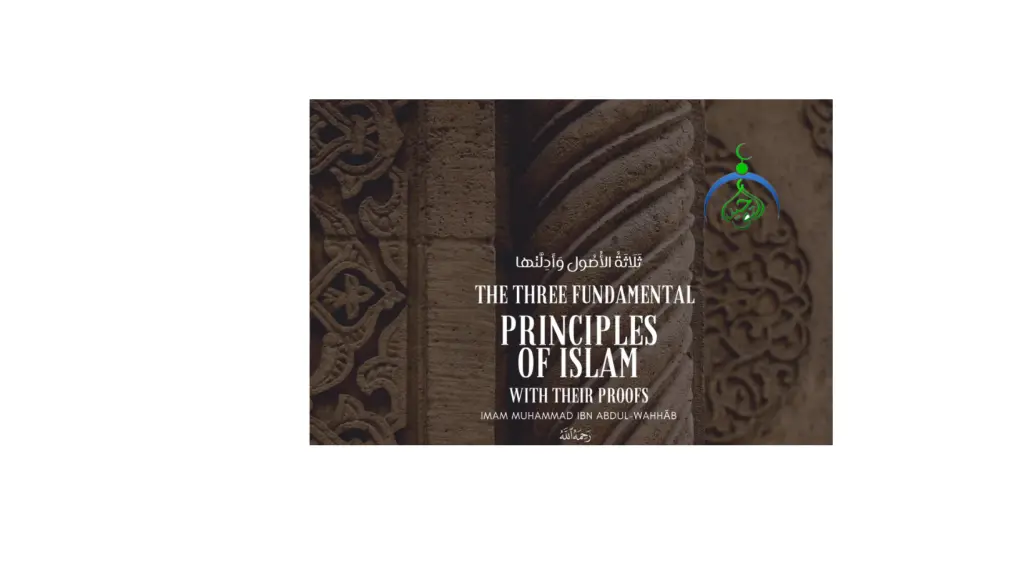Explore the basic principles of Islam, including its pillars, beliefs, and practices, in this comprehensive guide to one of the world’s major religions.”
In a world marked by diversity, the principles of Islam have stood as pillars of guidance and spirituality for over a millennium. This article aims to Understand the basic principles of Islam, shedding light on its core beliefs, practices, and values. In this Topic we will cover the Basic Principal Of Islam.

Islam, one of the world’s major religions, has a rich history and a significant global following. With over 1.9 billion followers , it’s vital to comprehend the fundamental principles that underpin this faith. These principles offer a profound insight into the lives of Muslims and provide a basis for interfaith dialogue and mutual respect.
Monotheism (Tawhid):
Monotheism, often referred to as “Tawhid” .Islam is centered on the belief in the absolute oneness of God (Allah in Arabic). Muslims believe that there is no god but Allah and that He is the only deity worthy of worship.
Holy Quran Give lesson of Monotheism and most of the verses of Holy Quran are about Monotheism.
“Indeed, We sent Nuh (Noah) to his people and he said: “O my people! Worship Allah! You have no other Ilah(God) but Him. Certainly, I fear for you the torment of a Great Day!”.
Tawhid is not only a fundamental belief in Islam but also serves as the foundation for the entire Islamic faith. It distinguishes Islam from polytheistic beliefs and underscores the absolute and singular nature of God. Muslims believe that recognizing and adhering to Tawhid is crucial for a fulfilling and righteous life and is a key theme in the Quran, the holy book of Islam
Prophethood (Risalah):
Prophethood, also known as “Risalah” in Arabic, is a fundamental concept in Islamic theology. It refers to the belief in the appointment of prophets by God to convey His messages and guidance to humanity.
The main purpose of prophethood is to deliver God’s revelations and guidance to people, leading them to the right path and teaching them about their responsibilities toward God, fellow humans, and the world.
Quran say:
وَمَا أَرْسَلْنَا مِن قَبْلِكَ مِن رَّسُولٍ إِلَّا نُوحِي إِلَيْهِ أَنَّهُ لَا إِلَهَ إِلَّا أَنَا فَاعْبُدُونِ
“Not a messenger did We send before you without this inspiration sent by Us to him: that there is no god but I; therefore worship and serve Me”
Islam recognizes numerous prophets, including Adam, Noah, Abraham, Moses, and Jesus, among others. Each prophet was sent to a particular community at a specific time in history.

Angels (Mala’ika):
Muslims believe in the existence of angels as spiritual beings created by God to carry out His commands. The archangel Gabriel is particularly important as he is believed to have delivered God’s revelations to the prophets.
In Islam, Mala’ika (angels) hold a significant role In Islam. They are considered sinless beings created from light, following the divine command of Allah. These angels perform various tasks, such as delivering messages to prophets, recording human deeds, and guarding individuals. Archangels like Jibril (Gabriel) and Mikail (Michael) play key roles in conveying divine revelations and managing aspects of creation.
Divine Books (Kutub):
Muslims believe in several divine books, including the Quran, which is considered the final and most important revelation. The Quran is believed to be the literal word of God as revealed to Muhammad.
“We have without doubt, sent down the Qur’an, and We will assuredly guard it.” (Holy Qur’an,
Day of Judgment (Qiyamah):
Islam teaches that there will be a Day of Judgment when all individuals will be resurrected and held accountable for their actions. Those who have done good will be rewarded, and those who have done evil will face punishment.
On the Day of Judgment, all human beings, from the first to the last, will be resurrected, brought back to life by the power of Allah. Each person will be held accountable for their deeds, both good and bad, that they committed during their lifetime. This includes thoughts, words, and actions.
Allah, the Most Just, will weigh and evaluate every individual’s deeds, and His judgment will be perfectly fair and just. Those who have done good deeds and followed Allah’s guidance will be rewarded, while those who have done evil will face punishment.
Allah Say In Quran
| لَا أُقْسِمُ بِيَوْمِ الْقِيَامَةِ ﴿١﴾ وَلَا أُقْسِمُ بِالنَّفْسِ اللَّوَّامَةِ I call to witness the Judgment Day; and in support thereof I call to witness the human conscience. |
أَيَحْسَبُ الْإِنسَانُ أَلَّن نَّجْمَعَ عِظَامَهُ ﴿٣﴾ بَلَىٰ قَادِرِينَ عَلَىٰ أَن نُّسَوِّيَ بَنَانَهُ ﴿٤﴾ بَلْ يُرِيدُ الْإِنسَانُ لِيَفْجُرَ أَمَامَهُ ﴿٥﴾ يَسْأَلُ أَيَّانَ يَوْمُ الْقِيَامَةِ ﴿٦﴾ فَإِذَا بَرِقَ الْبَصَرُ ﴿٧﴾ وَخَسَفَ الْقَمَرُ ﴿٨﴾ وَجُمِعَ الشَّمْسُ وَالْقَمَرُ ﴿٩﴾ يَقُولُ الْإِنسَانُ يَوْمَئِذٍ أَيْنَ الْمَفَرُّ ﴿١٠﴾ كَلَّا لَا وَزَرَ ﴿١١﴾ إِلَىٰ رَبِّكَ يَوْمَئِذٍ الْمُسْتَقَرُّ ﴿١٢﴾ يُنَبَّأُ الْإِنسَانُ يَوْمَئِذٍ بِمَا قَدَّمَ وَأَخَّرَ ﴿١٣﴾ بَلِ الْإِنسَانُ عَلَىٰ نَفْسِهِ بَصِيرَةٌ ﴿١٤﴾ وَلَوْ أَلْقَىٰ مَعَاذِيرَهُ ﴿١٥﴾
لَا تُحَرِّكْ بِهِ لِسَانَكَ لِتَعْجَلَ بِهِ
“Does man think we shall not put his bones back together? In fact, We have the power to restore his very finger tips.
But man desires to continue in his evil courses. He keeps asking: When will the Day of Judgment be? When the eye is dazzled, and the moon is eclipsed, and the sun and the moon exhibit the same phenomenon, on that day man will say: Is there a place of refuge? Not at all: there is nowhere to take refuge. On that day, with your Lord alone will be the place of rest. Man will be informed that day of that which he had committed and of that which he had neglected.
In truth man is aware of the working of his mind; even though he put forward his excuses.”